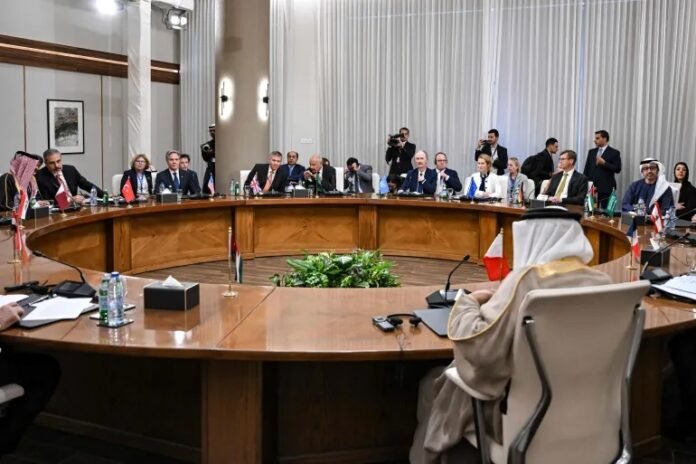UAE Discusses Syrian Developments with Oman, Kuwait, and Morocco Following Assad’s Overthrow
The Arab region is witnessing rapid developments following the end of decades of rule by the Assad family in Syria. Regional states are once again engaging in discussions on Syria’s future and ways to ensure its stability and territorial integrity. In this context, UAE Foreign Minister Abdullah bin Zayed Al Nahyan held phone discussions with his counterparts from Oman, Kuwait, and Morocco to address Syria’s future and explore avenues for joint Arab cooperation.
UAE and Syria: A New Phase of Dialogue?
The phone discussions came after Syrian opposition factions seized control of the capital, Damascus, marking a strategic shift in the balance of power within Syria and ending 61 years of Baath Party rule and 53 years of Assad family dominance.
- UAE’s Moves: Do these successive contacts reflect an effort to unify Arab positions on the Syrian crisis?
- Future Role: What role does the UAE aim to play in Syria’s new transitional phase, especially after its earlier engagement in restoring ties with the Assad regime before its fall?
Talks with Oman: Omani Neutrality and Balance
Oman’s neutral and balanced foreign policy has made it a credible player in regional crises. During the conversation between Abdullah bin Zayed and his Omani counterpart, Badr bin Hamad Al-Busaidi, discussions focused on:
- Syria’s Unity: Emphasizing the importance of preserving Syria’s sovereignty and territorial integrity.
- Popular Aspirations: Does this signify direct support for opposition factions, or is it part of a collective Arab stance for a peaceful power transition?
- Oman’s Role: Could Oman mediate to bridge gaps between various Syrian factions?
Kuwait: Strengthening Arab Efforts Amid Shifts
The call with Kuwaiti Foreign Minister Ali Al-Yahya centered on:
- Arab Cooperation: The importance of uniting Arab and regional efforts to stabilize Syria.
- Comprehensive Approach: What mechanisms could Gulf states adopt to rebuild Syria and help it overcome its economic and political crises?
- Humanitarian Role: Given its long history of supporting humanitarian causes, will Kuwait play a significant role in Syria’s reconstruction?
Morocco: Enhancing Arab Cooperation for Syria’s Future
Morocco, too, was a key player in these discussions, with Nasser Bourita and Abdullah bin Zayed emphasizing:
- Arab Unity: Could these discussions pave the way for an extraordinary Arab summit on Syria’s future?
- Development and Prosperity: How can Morocco contribute its expertise in reconstruction and development to support Syria?
- Regional Coordination: Do these UAE-Morocco talks reflect a desire to lead a joint Arab initiative on Syria?
After Assad’s Fall: What’s Next?
The capture of Damascus and the end of Assad’s rule raise major questions about Syria’s future:
- Transition Phase: How can a peaceful transfer of power be ensured without plunging Syria into renewed conflict?
- Role of the Opposition: Are Syrian opposition factions prepared to manage the next phase and achieve stability?
- International Support: How will major powers like Russia and Iran react to these developments?
Conclusion: A Unified Arab Position for Syria?
Amid intense diplomatic efforts, several questions arise about the role Arab states will play in this new phase:
- Will Syria receive unified Arab support for reconstruction and political stability?
- What mechanisms can be adopted to avoid internal divisions and ensure territorial integrity?
- Are these discussions a prelude to broader international initiatives on Syria’s future?
Syria’s future hinges on upcoming regional and international decisions, with the urgent need for Arabs to present a united stance that supports stability and builds a new Syria that fulfills its people’s aspirations.


